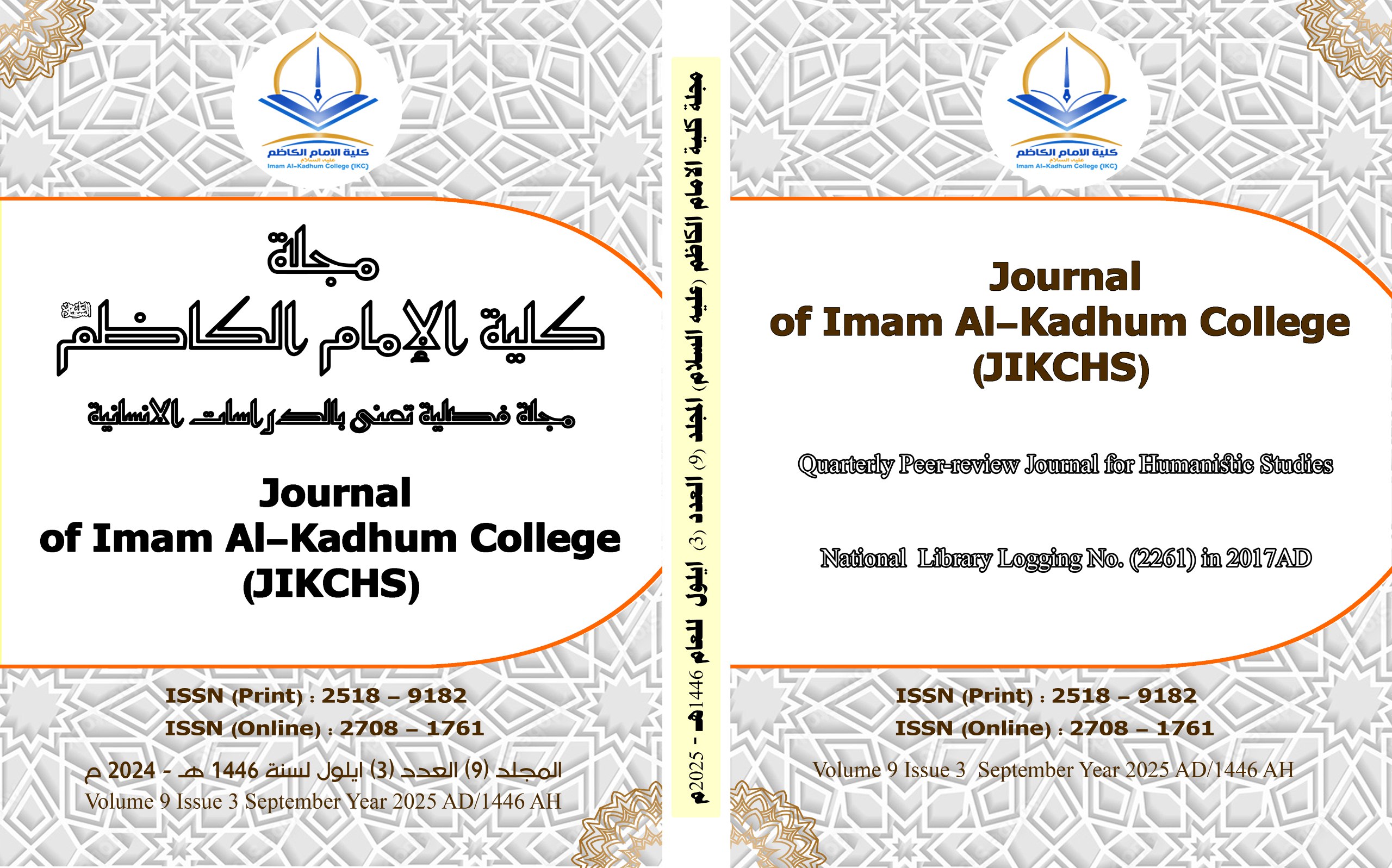"The Effect of Neglecting Individual Learning Differences on the Academic Performance of Gifted and Struggling Iraqi EFL Students in Middle School"
DOI:
https://doi.org/10.61710/0xv51128Keywords:
Individual learning differences, EFL, academic performance, differentiated instruction, Iraqi intermediate schools, gifted learners, struggling studentsAbstract
This study explores the impact of neglecting individual learning differences on the academic performance of Iraqi students learning English as a foreign language (EFL) in intermediate schools, with a focus on both gifted and struggling learners. As English language education gains prominence in Iraq's educational system, addressing learner diversity becomes essential for equitable and effective instruction. The research employs a mixed-methods approach involving standardized test data, teacher interviews, and classroom observations to assess the outcomes of undifferentiated teaching. Findings reveal that neglecting individual learning styles and abilities significantly hampers academic progress, particularly among students at the two extremes of the performance spectrum. The study advocates for the adoption of differentiated instructional strategies to enhance both engagement and achievement in EFL classrooms.
References
References
Al-Fahad, F. N. (2015). The Effectiveness of Differentiated Instruction in EFL Classrooms in Saudi Arabia. International Journal of Educational Studies, 7(3), 112–125.
Al-Hadithi, A. (2021). Challenges in the Iraqi EFL Classroom: A Case Study of Secondary Schools. Baghdad Educational Review.
Al-Mansour, H. (2020). Pedagogical Challenges in Iraqi EFL Classrooms. Tikrit Journal of Education.
Bandura, A. (1986). Social Foundations of Thought and Action: A Social Cognitive Theory. Prentice-Hall.
Carolan, J., & Guinn, A. (2007). Differentiation: Lessons from master teachers. Educational Leadership, 64(5), 44–47.
Coyne, M. D., Kame’enui, E. J., & Carnine, D. W. (2007). Effective Teaching Strategies that Accommodate Diverse Learners. Pearson.
Dörnyei, Z. (2005). The Psychology of the Language Learner: Individual Differences in Second Language Acquisition. Routledge.
Ellis, R. (2008). The Study of Second Language Acquisition (2nd ed.). Oxford University Press.
Gardner, H. (1983). Frames of Mind: The Theory of Multiple Intelligences. Basic Books.
Hall, T. (2002). Differentiated Instruction. National Center on Accessing the General Curriculum.
Hattie, J. (2009). Visible Learning: A Synthesis of Over 800 Meta-Analyses Relating to Achievement. Routledge.
Heacox, D. (2012). Differentiating Instruction in the RegularClassroom. Free Spirit Publishing.
Oxford, R., & Ehrman, M. (1993). Second language research on individual differences. Annual Review of Applied Linguistics, 13, 188–205.
Reis, S. M., & Renzulli, J. S. (2004). Current research on the social and emotional development of gifted and talented students: Good news and future possibilities. Psychology in the Schools, 41(1), 119–130.
Renzulli, J. S., & Reis, S. M. (2003). The schoolwide enrichment model. Gifted Education International, 18(1), 43–50.
Robinson, A. (2008). Differentiating Instruction for Gifted Learners. Prufrock Press.
Snow, C., & Biancarosa, G. (2003). Adolescent literacy and the achievement gap: What do we know and where do we go from here? Carnegie Corporation Report.
Tomlinson, C. A. (2001). How to Differentiate Instruction in Mixed-Ability Classrooms. ASCD.
Subban, P. (2006). Differentiated instruction: A research basis. International Education Journal, 7(7), 935–947.
Tomlinson, C. A. (2014). The Differentiated Classroom: Responding to the Needs of All Learners. ASCD.
UNESCO. (2019). Education in Iraq: Challenges and Opportunities.
VanTassel-Baska, J., & Stambaugh, T. (2005). Challenges and possibilities for serving gifted learners in the regular classroom. Theory into Practice, 44(3), 211–217.
Valiandes, S. (2015). Evaluating the impact of differentiated instruction on literacy and reading in mixed ability classrooms. Educational Research, 57(1), 51–68.
VanTassel-Baska, J., & Stambaugh, T. (2005). Challenges and possibilities for serving gifted learners in the regular classroom. *Theory Into Practice*, 44(3), 211–217.
Vygotsky, L. S. (1978). Mind in Society: The Development of Higher Psychological Processes. Harvard University Press.
Witkin, H. A., Moore, C. A., Goodenough, D. R., & Cox, P. W. (1977). Field-dependent and field-independent cognitive styles and their educational implications. Review of Educational Research, 47(1), 1–64.
Downloads
Published
Issue
Section
License
Copyright (c) 2025 Journal of Imam Al-Kadhim College

This work is licensed under a Creative Commons Attribution-NonCommercial-NoDerivatives 4.0 International License.





